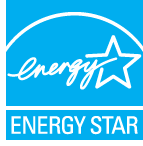Partner Resources
Home > Partner Resources > Specifications in Development > Power Adapters Background
Power Adapters Background
Why are external power adapters important?
External power adapters, also known as power supplies, are crucial to the operation of virtually all small electronic devices. As many as 1.5 billion are in use in the U.S. — that’s about five for every person. The total electricity flowing through all types of power supplies is about:
- 207 billion kWh/year,
- $17 billion a year, or
- 6 percent of the national electric bill.
However, these devices tend to be very inefficient. Left unchecked, by 2010, the energy use from consumer electronics and small appliances could account for almost 30 percent of a typical home’s electricity bill. Encouraging the use of more efficient power adapters will help stem this growing energy consumption.
The new guidelines for power adapters will help reduce greenhouse gas emissions; in the U.S. alone, more efficient adapters have the potential to save:
- over 5 billion kWh of energy, and
- prevent the release of more than 4 million tons of greenhouse gas emissions — the equivalent to taking 800,000 cars off the road.
Consumers are able to purchase a variety of products such as cell phones, PDAs, digital cameras, and camcorders that are manufactured with ENERGY STAR qualified power adapters. Products with qualified adapters are identified by an ENERGY STAR EPS graphic in product promotional materials and/or store displays on product packaging, literature, and/or store displays.

Who can participate in the ENERGY STAR Adapters program?
ENERGY STAR is currently recruiting adapter manufacturers that offer ENERGY STAR qualified adapters and consumer electronics manufacturers that make products using ENERGY STAR qualified adapters.
Where can I go for more information?
The sources of information and links identified below are provided to help you find the ENERGY STAR qualified product that best meets your needs. Please be advised that EPA does not endorse or promote these resources or attest to their objectivity.
For Consumers
For Adapter Manufacturers
- Power Adapters Background
- Key Product Criteria
- Full Eligibility Criteria

- Partner Commitments

- External Power Adapter Documents in Chinese
For Consumer Electronics Manufacturers Using Adapters
- Power Adapters Background
- Partner Commitments

- Specifications in Development
External Power Adapters Manufacturer List
Products with Qualified Adapters Manufacturer List
Qualified Product List for End-Use Products with ENERGY STAR Qualified Adapters
PDF ![]() | Excel
| Excel 



